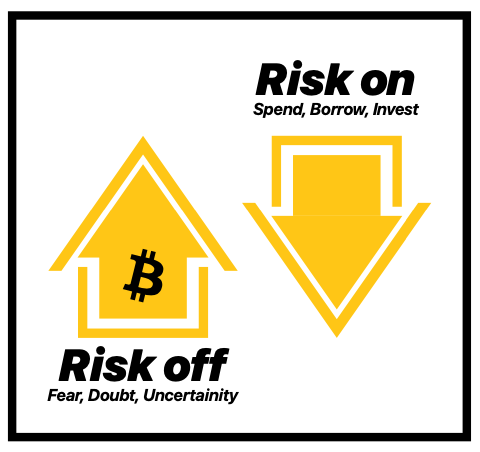Views | Information theory of money: Is Bitcoin our ultimate choice?
Original link: https://medium.com/the-bitcoin-times/information-theory-of-money-36247aebdfe1
Author: Dan Held
Translation: A Jian
Source: Ethereum enthusiast, original title "Viewpoint | Information Theory of Money"
- Digital Securities Research Report 2019: What is preventing it from becoming mainstream? What to expect in 2020?
- Looking ahead to DApp 2020: from smart contracts to application chains
- Technical Articles | What are the bottlenecks and thresholds for developing Dapps on Ethereum?
Price reflection information
"In a free market, price is knowledge and a signal to communicate information. Price is not only a tool for capitalists to make profits, but also an information system related to material production. It will communicate knowledge worldwide And coordinate complex production processes. "
—— Saifedean Ammous
Price is a collaborative source of power for a free market system. Every decision maker relies on the available price information of goods and services to help them make their own decisions, because prices reflect all known market information in one indicator. In other words, all the relevant information will eventually appear on the price after compression (if you prefer a more technical statement, then the price system is one-way like the hash function).
Every decision to buy and sell will in turn affect the price, so the new price will carry this new information back to the market. Some people may have heard this argument in the "efficient market hypothesis," although this hypothesis is mainly about how information in the market appears in the price of assets (such as stock prices).
(Translator's Note: In a word, buying and selling affects prices, so price changes become an indicator of market supply and demand changes. Entrepreneurs can estimate their production plans by staring at this indicator. Of course, because the production results of entrepreneurs are also reflected in prices, prices become a system, a system where everyone sends information to it, and it continuously carries information to spread out. A price system that cannot be dynamically adjusted is meaningless of.)
Money is a metric
"Currency plays a core information function throughout the economy. As a medium of exchange, a store of value, and a unit of account, currency is a key tool for understanding market conditions.
"Capitalism is not so much an equilibrium system as it is a dynamic field of entrepreneurial experiments. Then money should be the standard for measuring the results of entrepreneurial experiments."
——George Gilder
The essence of capitalism is the efficient use of capital under the constraints of given resources and time. Companies are the place to experiment with how best to allocate capital, and money is the yardstick for measuring "good". Making money means an efficient arrangement of capital, and losing money is a manifestation of inefficient use of capital. And competition is that countless independent companies and individuals respond to market demand with discrete decisions.

-Capitalism is a lot like chemistry, it's all experimenting :)-
Information is decentralized
"The efficiency of a centrally planned economy can never be comparable to a freely accessible market, because what one knows will always be a small part of the sum known to all members of society."
—— Hayek ("Knowledge Transfer Problem (Local Knowledge Problem)")
The economy of separate property rights therefore complements the decentralized nature of knowledge scattered throughout society. Every company tries to use what it knows to create products and services that ultimately prove to be effective use of capital (ie, make a profit).
To highlight the fragmentation of information, I quote a quote from Milton Friedman: "No one in the world knows how to make a pencil:
- Wood to be removed from the tree
- You need a saw to cut the tree
- To make a saw you need steel. To make steel you need iron ore
- You have to have graphite, you have to mine it from some mines in South America
- The eraser is made of rubber and may come from the rainforest
- Maybe have yellow pigment (packaging pencil)
- Putting these parts together may require glue.
So no central planning bureau can make it happen. All this works through the magic of the price system. "

-Praxeology ("Human Behavior") studies human behavior (Translator's Note: Praxeology was first proposed by Alfred Espinas in 1890, but is widely known because the term was used by the economist Mises.)-
Central banks and their outstanding data issues
Central banks face data problems from beginning to end-just like all electronic signal processing systems, there will be bottlenecks in data acquisition, data processing and decision making. The centrally planned economy is not working because the planning center cannot obtain all the knowledge necessary to make the best decision at any time. Don't even think about being wise forever.
"The difficulty of using knowledge is that, as a whole, knowledge is not concentrated on one person."-Hayek
To operate efficiently, central banks have to collect trillions of data points every day, and there is no perfect way to collect so much data in the world. Think about how many cars people drive each day, how many sandwiches they buy, and how many payments they make within a mobile app.
"We need to believe that we live in a predictable and controllable world, so we turn to those who promise to meet our requirements and look authoritative and trustworthy."- Philip Tetlock
In the past we created the central banking system because we wanted the world to be "more orderly" and we wanted to believe that someone had control over everything. But even if we can collect the data perfectly, it is difficult to conclude simple causality for this complex, chaotic system (which contains the decisions of billions of individuals). Although it seems easy to determine the causal relationship between weather and harvest, how can you generalize why pancakes need to change? Economics is not like the natural sciences. We are always subject to insufficient samples. We cannot repeat the Internet bubble when another president is in power and another central bank is in administration.
This raises another question: how does the central bank measure the impact of events and make decisions? There is an old saying, "If you can't measure it, you can't manage it." It is not easy to measure the mass of one kilogram with high accuracy, so how can you accurately measure the degree of inflation? (Calculation of CPI (Consumer Price Index) does not even include food and energy in the commodity basket!) (Translator's Note: I do not know which statistical office the CPI said by the author. Generally CPI calculations include food and energy Price; also, according to Wikipedia, the "core rate of change in prices" is removed from food and energy prices.)
"Big events come out suddenly. In an unpredictable event (the so-called 'black swan incident') determines the real world, making predictions may still do more harm than good, because it creates The illusion of prediction. "-Carl Richards
Carl also said, "The so-called risk is that you are confident that you have missed everything after considering all the circumstances." Daniel Kahneman has also made famous claims about the dangers of learning from history:
"After the fact, Zhuge Liang, the ability to explain history, has given us an illusion, thinking that the world is inexhaustible without our understanding; that the entire world is operating orderly, even if the status quo is out of order. Many areas are a big source of big mistakes. "
Here's a useful analogy: The Fed is like driving a car, but the rearview mirror is foggy and the front windshield is blurry. That car is the entire economy, and that glass is our insight. So how could the Fed drive a good car? Is it better to let the car adjust itself according to the road conditions?
The interpretation of history cannot be separated from imagination and intuition. The amount of so-called "evidence" is so large that you have to choose.
Do we have any other choice?
Sound currency
"Sound Money is synonymous with honesty in the scientific sense: once the experiment is over, no data changes are allowed."
-Adam Taché
A sound currency is a fixed ruler scale that does not allow planning authorities to manipulate the results of the measurement.
Bitcoin is the perfect iteration of a sound currency. There is a hard upper limit on the number of Bitcoins for a reason: to be an accurate metric, to reduce the risk of political attacks, and to encourage speculative crazes and incarnate viral marketing.
Why is the upper limit 21 million? Why not 100 million?
The reason is … this specific value is not important at all ! It is important to have a fixed number. Because economic activities have grown from small scales, it is difficult for individuals to make decisions without a fixed unit of accounting to compare values.
As for the risk of political attacks, Satoshi Nakamoto considered it impossible to set a “suitable” inflation rate, so he decided to eliminate the space for human intervention. Nakamoto's two statements in support of a fixed supply have supported this conclusion:
"With the growth of the size of users, no one in our system will adjust the money supply like the central bank or the Federal Reserve. (If you want to reasonably adjust the amount of money, you need a trusted entity to determine the value of money because , As far as I know, software has no way to know the value of something in the real world. "
TA also said:
"If there is a good way to anchor the money supply, or if we can trust someone and give him the right to actively manage the money supply, this rule should have been programmed long ago."
Finally, Satoshi Nakamoto assumed that a fixed ceiling of the money supply would create a speculative boom.
"As the number of users increases, the price of currency also rises, which may constitute a positive feedback loop: users increase, prices rise, and then attract more users who are trying to profit from appreciation."
Meaning of sound currency
Bitcoin is the ultimate safe-haven asset. As more people buy bitcoin and its derivatives, it will become a de facto safe-haven asset.
After the arrival of the Bitcoin era, Bitcoin will become a value storage tool, an exchange medium, and a unit of account. Bitcoin will reflect "risk-free" returns with unprecedented accuracy, and market participants will be able to allocate resources more efficiently . The risk-taking / risk-exit operation of every market participant (whether an individual investor or a company) will appear in the price of Bitcoin.

Finally, when Bitcoin becomes a unit of valuation and is used in daily transactions, market participants can observe real-time capital flows of their suppliers and customers (through their publicly available Bitcoin addresses). This transparency makes the market super efficient because the way information is handled is very efficient.
Bitcoin has reshaped the way capital is distributed in the economy and will eventually create a richer world for all.
We will continue to update Blocking; if you have any questions or suggestions, please contact us!
Was this article helpful?
93 out of 132 found this helpful
Related articles
- Coinbase CEO: the next decade of cryptocurrencies
- From Web2.0 to Web3.0: Is Web3.0 a wake-up call or an alarmist?
- Compared with the original chain of the original chain in 2020, MOV, more than the original, Bystack, more than the original
- Free and easy week review 丨 EHM theory tells you seriously and objectively: BTC halved will not rise in the end
- Industry Blockchain Weekly 丨 Local "two sessions" kicked off, blockchain becomes a hot topic for discussion
- Featured | NFT Game User Overlap Report on Ethereum; How Zero-Knowledge Proof Changes the Blockchain
- DeFi data observation in 2019: the efficiency of the lending market has improved, and DEX has developed differently



